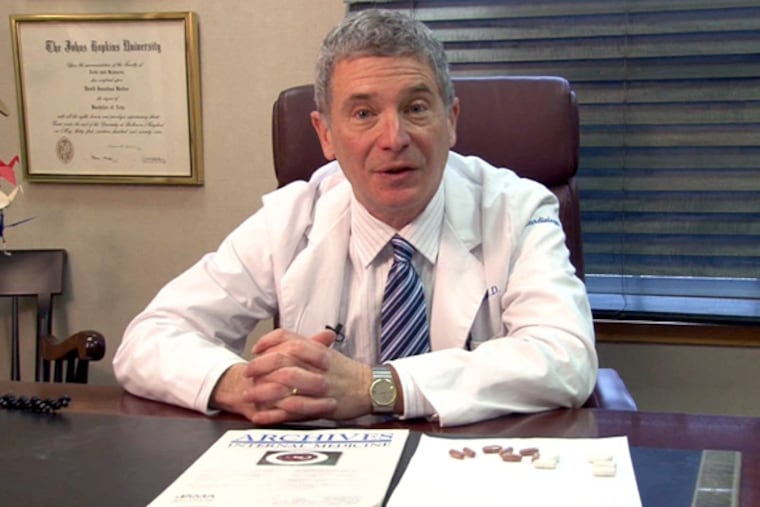Philadelphia doctor shares how he copes with cancer scan anxiety | Expert Opinion
Routine tests for cancer patients contribute to "scanxiety." A retired Philadelphia doctor shares how he copes.

For the last 30 years, I have walked the Ocean City boardwalk. When my kids ogled at the hermit crabs and funnel cake, I indulged them.
But when they wanted to see the fortune teller, we kept walking. I was never interested in someone telling me what the future held. I enjoyed being in the moment.
Three-and-a-half years ago, after a glioblastoma diagnosis, I had to change my perspective.
Glioblastoma multiforme (GBM) is the most common type of cancerous brain tumor in adults. The disease has been in the news since President Joe Biden’s son Beau was diagnosed in 2015.
» READ MORE: After brain cancer surgery, a physician gets an up-close view of rehab and what needs to change
Since this disease entered my life, I’ve felt like my fortune is told every two months. My crystal ball is an MRI at the Perelman Cancer Center. This MRI, which I must get every two months, scans my brain and tells me what future lies ahead. Will the scan be good or bad? Will I be able to continue life as I know it?
I dread scan days. But unlike my days on the boardwalk, I don’t get to pass them by. Whatever my crystal ball says may require immediate change to my life: surgery, radiation, or a new chemotherapy.
As scan day approaches, the “scanxiety” level in our house skyrockets. There isn’t a lot of chatter about it, just a thick, knowing silence of dread and vulnerability.
The unknown makes me anxious. I used to think it’s an all-or-nothing kind of thing. Either the scan looks good or there’s been progression of the cancer. This all-or-nothing feeling is scary.
After my most recent recurrence, my perspective has changed.
Here is what I have learned: A scan may not be all good or all bad. To borrow a phrase from my wonderful oncologist, it is complicated. For me, right now, it is not whether I live or I die. Rather, it means I stay the course or go on to the next treatment available. This fortune teller guides my treatment. It’s not all or nothing. It’s about adapting.
» READ MORE: What cancer taught a Philly doctor about planning for retirement | Expert Opinion
Despite my new approach to thinking about these scans, I still get scared. I used to think that feeling anxious was something I just needed to endure. Throughout my work as a cardiologist, I always told patients to focus on their lifestyle, and medications could be used when necessary.
Turns out, I needed to take my own advice. Now, in addition to exercise, a healthy diet, and the support of my loved ones, I may take an anti-anxiety medication such as Xanax before a scan. It helps me feel more calm. I have learned to adapt.
In my many visits to the Perelman Cancer Center, the crowded halls indicate that I am not the only one facing uncertainty. To me, it feels like there is unspoken empathy amongst the patients and caregivers. No one wants to be there. No one wants cancer.
If what I have learned can be of help to this community, then this article has served its purpose. I am still learning, and would welcome you to share your approaches and strategies to coping with “scanxiety.” Writing about my experience has been cathartic for me, and I appreciate hearing from readers.
Because of my expressive aphasia, my wife and daughter helped me articulate my experience. Thank you to Sherri and Chloe for their collaboration.
David Becker is a board certified cardiologist who recently retired after 30 years of clinical practice. Sherri Becker is a registered nurse and adjunct professor at Gwynedd Mercy University. Chloe Becker is a medical student in Washington. Beckersix@comcast.net